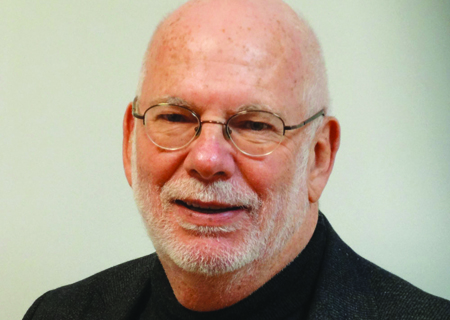Saudi Broadcasting Corporation is working with French digitisation specialist Vectracom on a large archival project to make its assets more accessible in the future. BroadcastPro ME brings you details of how the project is shaping up Snapshot End user: Saudi Broadcasting Corporation Location: Kingdom of Saudi Arabia Objective: To digitise 100,000 of […]

Saudi Broadcasting Corporation is working with French digitisation specialist Vectracom on a large archival project to make its assets more accessible in the future. BroadcastPro ME brings you details of how the project is shaping up
Snapshot
End user: Saudi Broadcasting Corporation
Location: Kingdom of Saudi Arabia
Objective: To digitise 100,000 of SBCs tapes and undertake metadata enhancement for 250,000 audio-visual clips with an average duration of 20 minutes
Solution provider: Vectracom
Local systems integrator: First Gulf Company
Saudi Broadcasting Corporation (SBC) recently brought on board Vectracom, a French specialist in converting legacy video recording formats, to undertake a two-pronged archival project. The two-year contract aims to have another 100,000 tapes of SBCs audio and visual archive digitised while also enhancing the metadata for 250,000 of its clips, with an average duration of 20 minutes. The metadata enhancement was commissioned last year and is a first attempt on the part of the broadcaster to make its assets more easily accessible should they be required in the future. Vectracom, which has worked on some of SBCs previous archival projects, is managing this in conjunction with the main contractor, Saudi-based systems integrator First Gulf Company (FGC).
SBCs digitisation and archival plan has been running for several years and has been undertaken in phases to make the Herculean task more manageable. The broadcaster has assets in varying formats, including hundreds of thousands of hours of programmes on 16mm films and other tapes that it has been digitising over the years.
This new project will see Vectracom treat 100,000 Betacam tapes, including analogue and IMX cassettes. The French specialist has deployed a set of robots controlled and complemented by software it has created and adapted for the preparation, segmentation, digitisation, quality control and monitoring of operations for the preservation of this content.
As part of the workflow, SBC provides batches of cassettes to the FGC / Vectracom team. A barcode label is added to each cartridge as soon as it enters the operations area. The team treats 300 clips with an average duration of 10 minutes every day, following the procedure of preparation, digitisation, quality control and validation before final acceptance by SBCs representatives.
The content is then transferred into the broadcasters digital archive, also recently enhanced by FGCs teams as part of this project. The archive solution now has a storage capacity of 800TB, managed by SBCs content management system (CMS). The second part of this project entails metadata enhancement. It includes collecting and cleaning the metadata and adding information when required, especially for high-value media assets.
The first step in any metadata improvement campaign is to recover the existing information and make an inventory, says Laurent Gignoux, President of Vectracom.
This is what was initially delivered as Vectracom recovered the contents from nine of SBCs internal databases and existing MAM platform. These sets have been consolidated by our engineers into a single database that currently serves as support to the metadata enhancement project. A set of information on index cards has also been scanned and taken to consolidate the database.
The second step is to check that the information coming from these varying sources is similar and not contradictory. The data analysis is still done here by our engineers as they prepare the basis for the next step, which is to verify the content and manually improve the existing description. At the third stage, 15 of our archivists will verify and sort retrieved information for each content and improve it as required.
The average duration of each of the clips in this project is 20 minutes, and the average time spent by an archivist on each clip is 14 minutes. Details of metadata vary for each clip.
While it is not possible to index 20 minutes of content in 14 minutes, operators for this project are not expected to start from scratch, as all SBC clips do not require the same quantity of information. Indexing with keywords also facilitates the job, clarifies Gignoux.
In addition, special displays have been designed for the project, which enables the operators to make their choices more quickly and enter only valid data.
The indexing is done on workstations that can read the content from the digital archive. Navigation through these digital contents is easy and fast. Operators can instantly move from one point of a clip to another, and all the metadata that is already available for the sounds or videos are shown simultaneously, Gignoux explains.
SBC will soon have more than 800,000 media assets in its digital archive 70% are sound recordings, while 30% are video assets. The metadata enrichment project is also being performed in phases by the team. This first phase, an ignition operation, includes 250,000 audio-visual elements.
Our teams manage the project in detail, on-site at SBCs premises. They have prepared and brought special equipment to achieve this. We have recruited local operational teams, trained them to use the equipment and tools, and we supervise them for both the digitisation as well as the metadata enhancement sub-project. They ensure proper operation of all the equipment and compliance with industrial processes that have been developed and are implemented by procedures that must be followed to ensure the level of quality required by SBC. They guarantee the quality of files and information that are delivered, as they are responsible for the validation, says Gignoux.
Vectracom, which has almost 50 people at its headquarters in France, also has a base in Morocco and many of its archive specialists hail from the Arab world.
The project supervisor for this task, for instance, hails from Morocco, where he was the technical manager of a news TV station. We also usually hire archivists or people with a degree in historical studies from Saudi Arabia and train them further to help with the metadata additions.
Vectracom has been involved in SBCs digitisation and archival projects since 2009. From 2009 to 2010, the French company digitised the oldest items at SBC, which was then known as the Ministry of Culture and Information (MOCI). Specialists were sent to the broadcasters headquarters in Riyadh with equipment to scan 60,000 hours of programmes. This was managed with the help of operators the French company recruited and trained in the Saudi capital.
Back then, in 18 months, 7,600 films, 32,000 two-inch reels, 41,000 one-inch B reels and 1,600 one-inch C reels were baked, cleaned and digitised to preserve their content in the highest quality available.
Saudi Arabias broadcaster has been one of the most forward-thinking, state-backed entities in the Arab world, and recognised early on that it had several thousand hours of media assets that could be lost if it did not take early action to preserve its cultural heritage.
Suboptimal storage conditions have already led to the disappearance of reading equipment. The hot weather conditions and humidity in Saudi Arabia have contributed heavily to the deterioration of magnetic tapes and cassettes, as well as film (movies).
There are several factors that are making it increasingly difficult to digitise or retrieve media tapes. For one, magnetic recordings are ageing and require treatments that are more complex and expensive. Magnetic systems are also mostly hydrophilic. This means the humidity accelerates their deterioration through the rapid creation of more moisture and fungi, thereby destroying the records even more rapidly. Along with this media degradation, there is the fact that the playback devices for these tapes are ageing and going obsolete. All of this is making the process of digitisation increasingly cumbersome, and therefore more expensive by the day, explains Gignoux.
SBC was forward-thinking in taking action a decade ago to preserve and enhance its archives. Since then, large chunks of AV material have been systematically digitised, although there is still a vast chunk of tape left to be treated. However, it is getting there.
Initially, SBC focused on digitisation but once sufficient progress was made there, the broadcaster added a parallel challenge indexing that content. The need to index was not a priority previously, and it was difficult then to estimate the volume and scope of work until digitisation of a large chunk of AV content was completed, says Gignoux.
Once that was done, Vectracom looked into SBCs multiple databases, which describe the content of the archives in varying detail.
Some assets have more descriptions, while others have less. It was difficult to assess how much effort the indexing and metadata enhancement would require until we had looked at the databases, Gignoux explains.
At present, alongside the digitisation of its remaining Betacam cassettes, SBC is also improving the indexing of its digital archives. Of course, this digital archive is constantly being fed with daily production from SBC. Both tasks now run in parallel, although indexing is gradually taking priority.
Gignoux points out, however, that indexing old material is difficult, as it requires people who have knowledge of events that took place decades ago.
SBC realised that the descriptive information on audiovisual content which hadnt been entered into a database/MAM so far can only be fetched by SBC staff or by archivists, who have knowledge of the events that were reported by the media several decades ago. This is actually a characteristic of the indexation process. Captured information has more value at the time of content creation. It becomes less relevant and more expensive with time.
Gignoux warns that procrastinating digitisation not only makes the process more prohibitive the task may become impossible to perform.
The equipment required for these tasks has become obsolete and the technicians who can operate them are not immortal. One day, digitisation will become so expensive that you will only be able to utilise it for very valuable content. And a few years after, even if your content is invaluable, we will have no options to preserve it, cautions Gignoux.
Naim Saidi, CEO of FGC adds: SBC has completed digitising a significant portion of its analogue assets and we are very proud to have helped bring this project to fruition along with Vectracom.
















































































